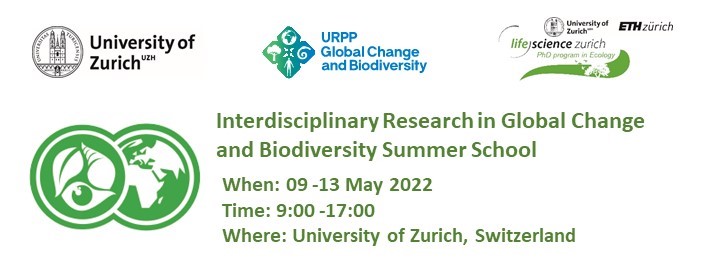Spring 2022
Interdisciplinary research in global change and biodiversity school
In both policy and academic circles there is increasing recognition that challenges such as global change and biodiversity loss must be addressed with an integrated approach. Thus, a novel “type” of professional is needed to integrate innovative interdisciplinary teams. In this school, our aim to train students in addressing the complex relationships and feedbacks, inherent to global change and biodiversity loss, towards a sustainable outcome. We introduce the five direct drivers of global change: land and sea use change. direct exploitation of organisms, climate change, pollution and invasion of alien species. We examine different ways that the well-being of humans and ecosystems is dependent on these systems being viewed as inseparably related. Students are introduced to how a co-production of knowledge approach will further our understanding of biodiversity and earth system processes, social processes and their integration.
Students are exposed to a selected set of theories and frameworks developed to address the interlinked challenges of human well-being and environmental sustainability. We provide students from all disciplines with the necessary background to understand and highlight the importance of integrating across these aspects in their education, their work, their future career and the challenges they will encounter in the future as an innovative graduate, i.e., novel “type” of professional.
Lecturers:
Debra Zuppinger-Dingley (UZH, CH)
Norman Backhaus (UZH, CH)
Mollie Chapman (UZH, CH)
Anna Deplazes Zemp (UZH, CH)
Marcus Hall (UZH, CH)
Katherine Horgan (BBOWT, UK)
Maria J. Santos (UZH, CH)
Irmi Seidl (WSL, CH)
Download the program here (PDF, 285 KB)
The graduate school is funded through Post-SUK UZH MNF funding.
